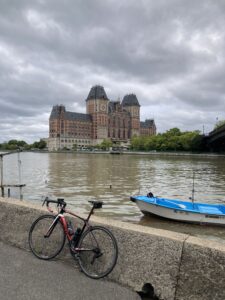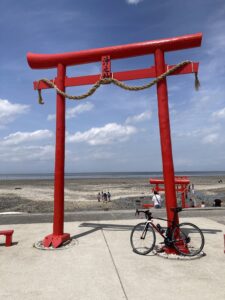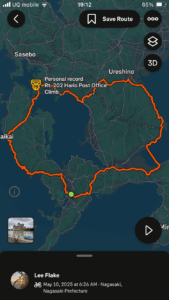多文化コミュニケーション学科
From Pedals to Perspectives: How Endurance Cycling Fuels Global Thinking
- 2025.05.18
- 多文化コミュニケーション学科
When I mount my road bike and start pedaling, I’m not escaping work—I’m entering a different kind of classroom. The road stretches before me like a research paper I haven’t fully read, and every kilometer is a paragraph in a story about perseverance, reflection, and cross-cultural understanding.
Endurance cycling is a discipline of repetition and rhythm. Each crank of the pedal generates forward motion, converting effort into distance. It’s a simple, beautiful equation: momentum is born from consistent movement. This symbolism has become deeply personal for me—not only as a cyclist, but as an academic, a department head, and a communicator.
As I turn the cranks, I often think of our students and faculty—how they, too, are engaged in a journey propelled by accumulated effort. In multicultural education, we encourage our learners to step outside the familiar, to embrace the uncertain roads of language, identity, and intercultural dialogue. The early stages are slow, awkward, even painful—like pushing uphill into a headwind. But over time, confidence builds, muscles adapt, and perspectives expand. Just like on the bike, distance comes from persistence.
Cycling also teaches humility and awareness—essential qualities in global thinking. On the road, you’re vulnerable to conditions beyond your control: weather, terrain, traffic. You have to stay alert, responsive, and respectful of your environment. The same is true when we engage with different cultures. There is no single, smooth path. Each interaction requires balance, openness, and a willingness to adjust. Cultural competence, like cycling endurance, is earned over time.


There’s something profound about moving slowly through the world, powered only by your own legs. Unlike flying over landscapes, cycling immerses you in them. You feel the gradients, smell the change in the air, hear the rhythm of local life. These sensory experiences—often missed in our fast-paced academic schedules—are reminders of what global education should be: grounded, mindful, and connected.
As an instructor in the Department of International Studies, I strive to bring this perspective into our academic programs. Whether it’s developing language proficiency, intercultural communication skills, or collaborative international projects, I want our students to understand that education is not a sprint. It is a long ride—sometimes solitary, often shared, always evolving.
My rides have taken me through rural valleys, coastal routes, and city streets. Each journey adds not just kilometers, but insights: about patience, problem-solving, and the quiet power of perseverance. These are the same lessons I hope to pass on in the classroom and in our curriculum.
So when I’m out cycling, I’m not just exercising—I’m reflecting. I’m thinking about our department and how to better equip students for the global road ahead. I’m reminding myself that even when the headwinds are strong, each turn of the crank still moves us forward.
And that, I believe, is the essence of both cycling and education: a commitment to forward motion, one meaningful turn at a time.

by Lee Flake, Department of International Studies

